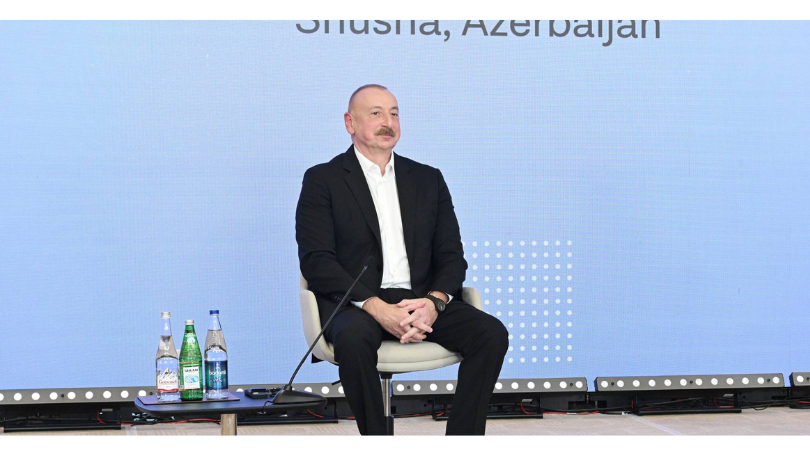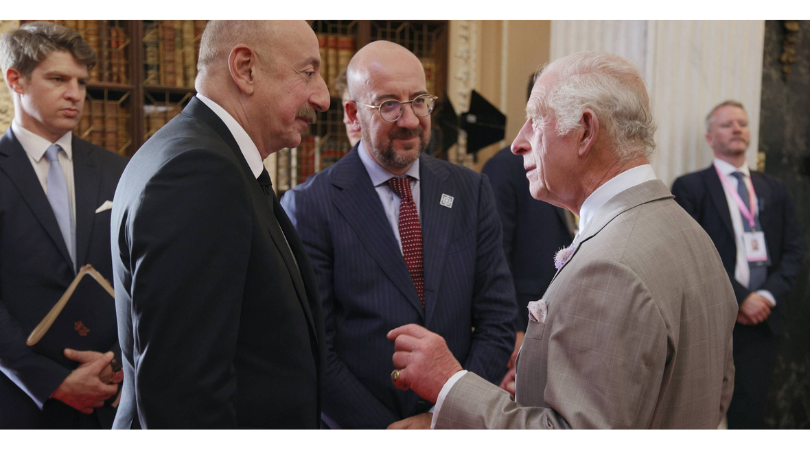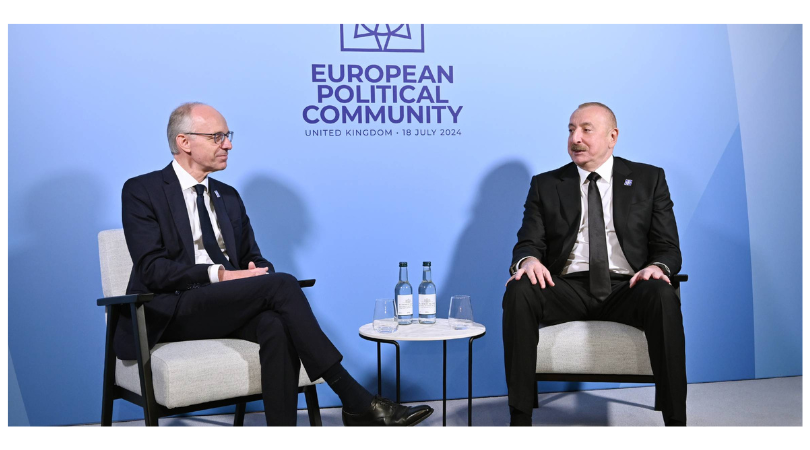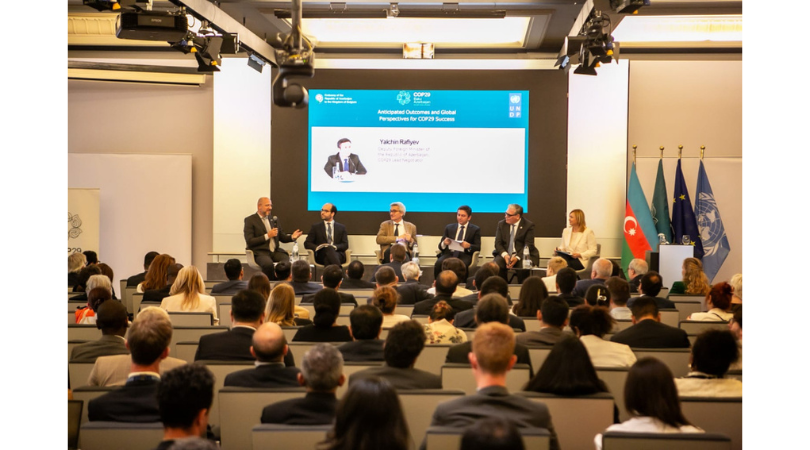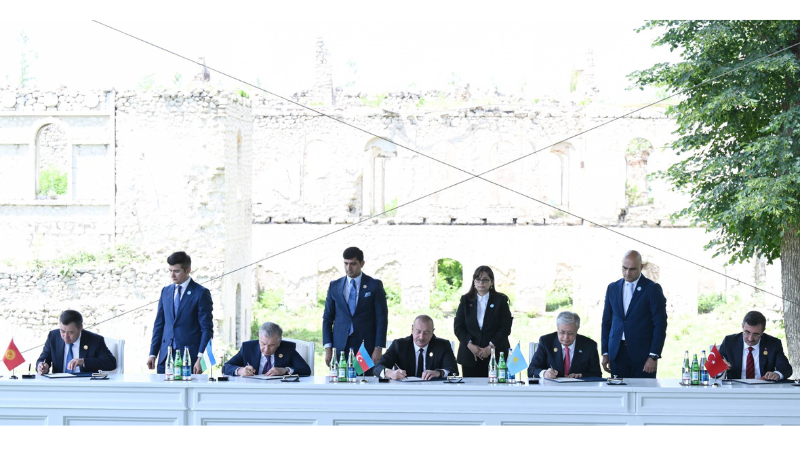Commentary of the Press Service Department of the Ministry of Foreign Affairs of the Republic of Azerbaijan to the letter of the Council of Europe Commissioner for human rights, Dunja Mijatović addressed to the President of the Republic of Azerbaijan
Given the stated interest of the Commissioner in following the recent human rights-related developments around the conflict between Armenia and Azerbaijan in recent months, it should be emphasized that the conflict has lasted for almost 30 years, caused enormous humanitarian sufferings and accompanied by massive violations of human rights of the hundreds of thousands of Azerbaijanis. Yet, all these sufferings and violations have been left unnoticed by the current Commissioner as well as her predecessors, under the pretext that they fall outside the Commissioner’s mandate.
The ensuing liberation of the Azerbaijani lands has revealed the horrific scale of destruction inflicted by Armenia on these territories during the years of illegal occupation. As part of a deliberate policy, hundreds of historical monuments, dozens of museums, mosques and cultural heritage sites were destroyed, looted and vandalized. Images and videos depicting the disgraceful treatment of holy sites, where old mosques in the occupied territories were desecrated and transformed into a pigsty are unfortunately in abundance.
Besides that during the course of the 44-day war, in a blatant violation of international humanitarian law, Armenia committed series of horrific war crimes. Shelling with ballistic missiles of densely populated residential areas of Ganja and Barda, as well as other cities of Azerbaijan located far from the frontline resulted in the killing of more than a hundred innocent civilians.
Again, all these revolting facts were regrettably ignored by the Council of Europe’s Commissioner for Human Rights. And no one can claim that these matters directly impacting the life and rights of the civilian population go beyond the Commissioner’s mandate.
Against this background, the Commissioner has now started to show interest in politically charged issues, suddenly forgetting restrictions imposed by the respective “mandate.” This is another sign of a double-standard and selective approach; which Azerbaijan has been often subjected to by different Council of Europe bodies.
The attempt to depict the conflict between Armenia and Azerbaijan as an “inter-ethnic hostility” or “bitter relations between the ethnic communities residing in and around Nagorno Karabakh” is a gross misinterpretation. The conflict was unleashed by Armenia on the basis of its groundless territorial claims against Azerbaijan and accompanied by heinous crimes, including acts of genocide, ethnic cleansing, other crimes against humanity as well as the most serious war crimes.
Furthermore, the Commissioner should be reminded that currently there is no “ethnic community”, as was referred to in her letter, residing “in and around Nagorno Karabakh” other than ethnic Armenians, due to the notorious practice of ethnic cleansing. The Parliamentary Assembly of the Council of Europe (PACE) in its resolution 1416 (2005) expressed its concern over “mass expulsion of population and creation of mono-ethnic areas, which resemble the terrible concept of ethnic cleansing”.
Commissioner’s “regret” over the inauguration of the Military Trophy Park in Baku is equally unsubstantiated. The Trophy Park symbolizes the triumph of international law and justice over the decades-long policy of aggression and ethnic cleansing. Immortalizing victory in the war for freedom, sovereignty and territorial integrity is a practice widely applied by many nations, including across the Council of Europe region. The Park like its analogies in other corners of the world will serve as a stark reminder that racism, discrimination and intolerance have no chance to succeed. This is a place for education for the present and future generations on the dangers of a policy of aggression and intolerance and provides the venue for seeking the truth.
“Dehumanizing scenes” or “disturbing and humiliating images” need to be looked for in other places across the Council of Europe area, where nations glorify their colonial past and demonstrate evidence of horrific crimes against the colonized peoples.
Five months after the end of the war, a worrying level of manifestation of hatred and Azerbaijanophobia is still observed in Armenian society. It is disturbing to see that anyone who dares to speak about reconciliation and peaceful coexistence with Azerbaijan is treated as “traitor” and called "Azerbaijani" and “Turk”, as denigrating slurs. Moreover, irresponsible and dangerous ideas of revanchism and intolerance are propagated at the state level, and regrettably, shared across the whole political spectrum in Armenia.
All these reprehensible developments have since remained however unnoticed by the Commissioner, including the fact that the Armenian authorities have failed to take any punitive step against any Armenian official for his/her racist approach towards Azerbaijan and Azerbaijanis. The public of Azerbaijan is not aware of any step taken by the Commissioner in respect of such blatant manifestations of intolerance, racism and discrimination by Armenian officials.
In conclusion, it should be emphasized that the letter of 20 April 2021 casts doubt on the independence and impartiality of the Commissioner’s work, and it might adversely impact the relations between the Commissioner’s office and Azerbaijan. Moreover, the very fact of the letter being very far from an impartial appeal clearly runs against the stated noble goal of “promoting peace and reconciliation”. On the contrary, it emboldens revanchist circles risking the fragile process of establishing good-neighborly relations in the region.
Azerbaijan strongly urges the Commissioner to remain impartial as requested by her mandate and refrain from actions and statements that negatively affect the authority and reputation of the Council of Europe.

